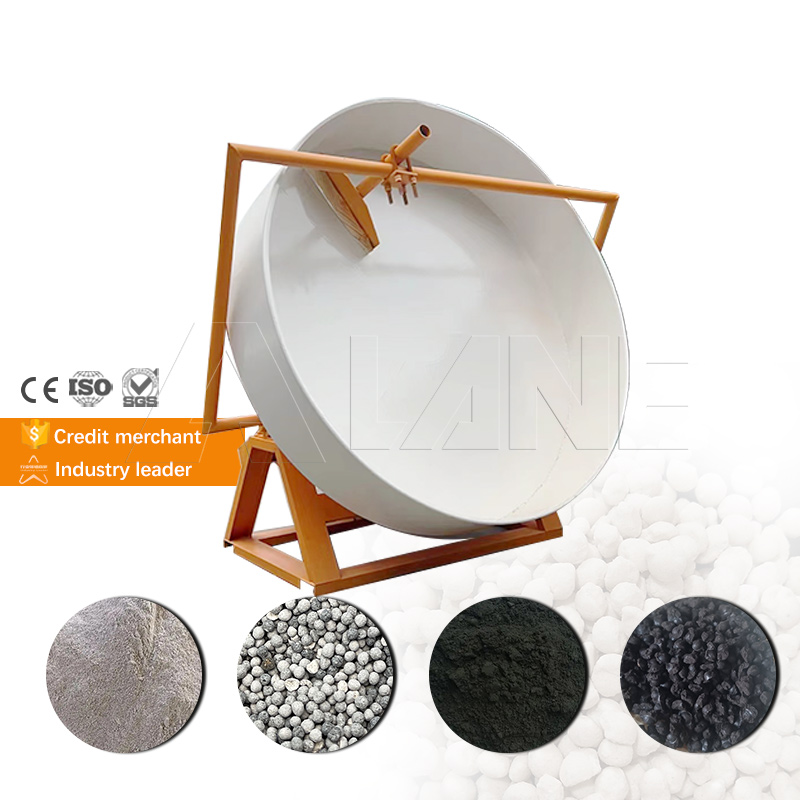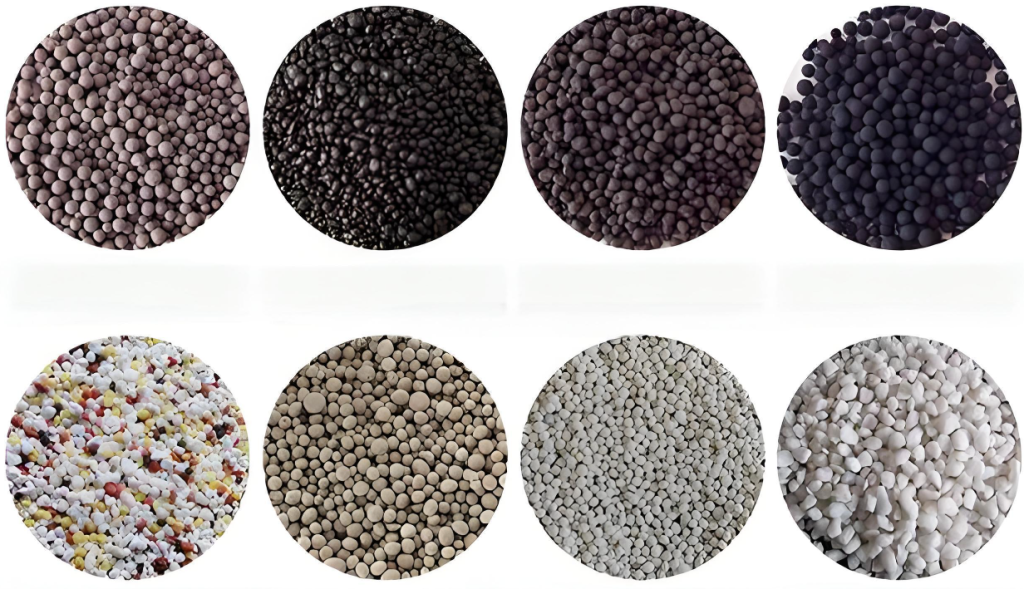Achieving a high sphericity rate with organic fertilizer disc granulator is instrumental for ensuring the quality and marketability of the final product. Here are detailed methods for optimizing the granulation process:

Starting with the right raw materials is paramount. The particle size distribution of the raw materials should be as uniform as possible to promote consistent granule formation. This often involves pre-processing steps like grinding or sifting to remove overly large particles that could disrupt the granulation process.
Additionally, the moisture content of the materials is crucial; materials that are too wet might need to be dried, and those that are too dry might require the addition of moisture. This can be managed by adding water in a controlled manner, often done through spray nozzles within the mixer, to bring the moisture content to an ideal range for granulation.
The operational parameters of the organic fertilizer disc granulator—such as disc inclination angle, rpm (revolutions per minute), and edge height—are critical performance factors. A typical approach is to experiment with varying angles between 45 and 60 degrees until the best particle flow and granulation are observed. Adjusting the speed of the disc of organic fertilizer disc granulator affects how vigorously the materials are tumbled, which in turn impacts granule roundness and size distribution. Furthermore, the edge height must be adjusted to contain the material within the disc without letting it overflow while allowing adequate space for particle growth.
Binders help particles stick together, and their judicious use is often key to achieving high-quality granules. Binders can be inorganic, such as bentonite clay or lime, or organic, such as molasses or waste-derived organics. The binder’s viscosity, surface tension, and wettability play a role in how easily it can be distributed and how effectively it binds the particles. Optimization may involve adjusting the quantity of binder added, its method of introduction, and its timing during the mixing process.
Overloading or underloading the disc can both lead to poor granulation outcomes. An experienced operator uses a feedback loop, observing the behavior of the mass within the organic fertilizer disc granulator and making adjustments in real-time to ensure the material level is optimal for good granulation.
Keeping the granulator in top condition ensures that it operates as intended, preventing issues such as misaligned or clogged components. Routine checks on moving parts, bearings, and seals help prevent unexpected downtime and maintain the machine’s efficiency.
The person operating the equipment must be well-versed in all aspects of the granulator’s operation. This requires a thorough understanding of the granulator’s working principles, common troubleshooting scenarios, and process optimization strategies. Training programs and continuous education can go a long way in maintaining high sphericity rates and preventing production issues.
Once the granules have been formed, they often require further treatment to achieve the desired properties. This may include drying to remove excess moisture, cooling to solidify binders and improve granule stability, and screening to separate undersized or oversized fractions. Each of these steps can affect not only the quality but also the ultimate sphericity of the granules.
Since every organic material has unique physical and chemical properties, what works for one may not work for another. Experimental small-batch runs allow producers to test different parameters and identify the best practices for each material. This iterative approach, coupled with analytical techniques to measure granule quality (such as sieving analysis for size distribution, and a crush strength test for mechanical stability), allows producers to dial in their processes for optimal sphericity rates.

By implementing these measures, producers can work towards achieving higher sphericity rates with their disc granulators. The key is to monitor and adjust the process continually, seeking continuous improvement through a combination of science, machinery operation skill, and empirical testing.
If you have any further inquiries about the organic fertilizer disc granulator, please feel free to consult our company at any time.